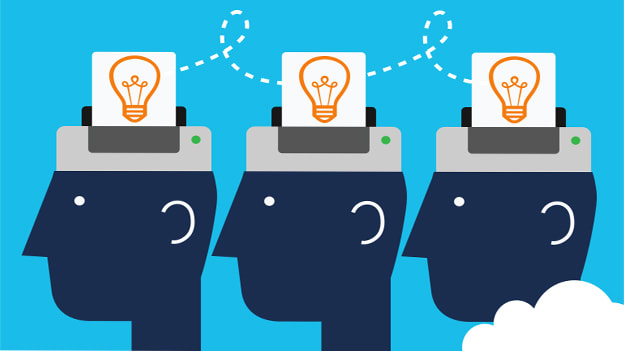New tech learning methods other than LMS

A lot has been spoken about technological advances and disruptions that have shaken up the functioning of many organizations. The claims cannot be denied nor confirmed entirely, as there have been many changes and developments in the processes that were being practiced since industrial revolutions.
Module learning through LMS has long lost its charm as new techniques of learning and development have come into existence. It can be quite difficult to change what has already been taught. However, we have not only accepted the new technologies but also implemented them in our day-to-day lives.
Here are a few significant changes that have impacted the method of imparting knowledge.
- Other tools of learning apart from LMS
With changing time and needs, we have evolved with new technology and LMS no longer has the upper hand, though it is not entirely extinct. As per Fosway’s recent findings, approximately 60% of customers feel their LMS provider fails to provide good service and only 25% think their LMS shows innovation. New tools like "Spaced Learning" give employees to learn and engage as per their availability and interests. Spaced learning takes only five minutes of training at a time, then curates and sends another five minutes of training the next day, time for optimum recognition.
We now have an entirely new marketplace for tools that are most of them being less than five years old and each trying to overlap other and claim a unique place in the landscape. Various mechanisms for calculating different aspects are trying to overpower each other like tools for external content curation, tools to build MOOCs internally, tools to deliver adaptive, micro-learning content, and intelligent tools to help recommend content, assess learning, practice and identify skills gaps. - Experience matters: The xAPI standard
All experiences matter they are a part of our learning and help us develop ourselves and our skills. The Experience API or xAPI is designed carefully to track all our activities from watching a video to working on a project. It helps to understand the concept of continuous stream of learning and activity to both the employer and the employee. xAPI will become a core indicator over time, and it will help people understand adaptive and curious learning. Many organizations like Google have adapted to xAPI - Adapting Micro and Macro learning
Microlearning is usually short-term learning like articles, videos, and podcasts. These learnings come handy in everyday activities and supporting tasks which require on-demand immediate action. Macro learning is for long-term and usually course-driven elements. Macro learning is crucial for building our knowledge and set the context. However, we need micro-education throughout our professional lives to help us stay on top of new developments and trends. We’re surrounded by microlearning, and the challenge is finding what’s relevant to us as professional individuals and teams.
The problems vary from finding good content to finding the time to consume it in micro-learning. An average worker spends 19% of their week looking for information and only 24 minutes a week learning. - New epitomes of learning have emerged
Things have progressed rapidly and we are the GenX generation. The future of learning is a distributed architecture with not one but many platforms like social networking and content library. Multiple tools provide an open infrastructure which plugs in content and apps from a mixture of sources, giving the client more power over the experience, plugins and content availability. Fuse, Netex, and Red Panda use a range of APIs to bring in multiple sources of content and allow a more configurable practice for the user and the team.
- Training methods are still vital: Coaching and Training
Training and coaching have been a part of imparting knowledge since the industrial revolution and undeniably have their share of flaws, but it cannot be denied that social learnings are more effective.
People learn and grow when experiences are shared together and receive opinions or solutions from another employee or mentor to overcome their shortcomings or problems. These methods have also changed with the help of e-learning or e-activities that not only help you interact with each other but gain information and access to knowledge through various digital portals social networking being one of them.
Survival of the fittest is no longer just a phrase that each one of us hears but the reality of fast progressing life. Technology is not the only one that caused disruption, but the priority for corporate learning has been highlighted and necessary. Jobs are changing rapidly and automation is impinging on our work lives. We have to look things up, learn quickly and find ways to develop new skills at work. It is critical to keep a sharp eye and an open mind to adapt to new technology that will benefit not only today but make the difference for tomorrow.











